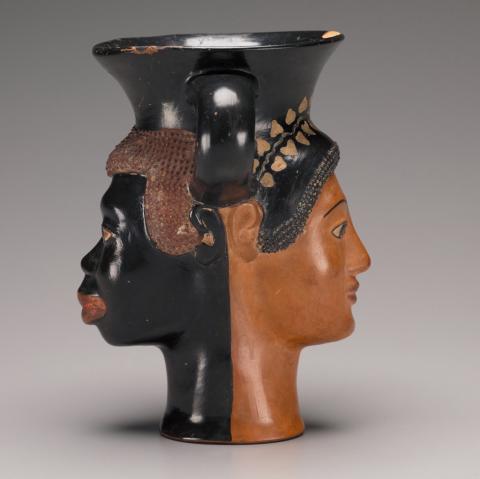Javal Coleman
February 24, 2023
“What is it like to be the only Black person in your department?”
I first became interested in studying Classics when I took a World History survey course at the University of North Texas. The best part of the course for me was the module on Greece and Rome.
While I met a few people in the Classical Studies program at UNT who made my time there enjoyable, it was difficult being the only Black person in most of my courses. It made me feel as though I did not belong there. As if I was out of place for being there. And throughout my time at UNT, no matter how much my colleagues in Classical Studies made me feel at home, these feelings of alienation remained.
I arrived at the University of Texas in Austin in Fall of 2020, in the midst of a pandemic. Whether I was sitting in a seminar in person or via Zoom, it was obvious that I was, again, the lone Black person in the room. Though many of my colleagues and professors have been unfailingly kind and collegial, there is a sense of loneliness that has crept in.
Yet I am grateful for the internet. Otherwise, I would never know rockstars such as Dan-el Padilla Peralta, Jermaine Bryant, Jackie Murray, and Nadhira Hill, to name a few individuals who have made my time in the field a bit more cozy.
Though I am not the only person in my department or any department who has felt this way, for Black History Month, I want to talk about my experiences as a Black person in my department.
The questions that I have frequently asked myself, as I have sat in a seminar room in
We are currently searching for an ancient historian and, unfortunately, there are no African Americans in the finalists. We await prospective graduate students, and it would be quite encouraging to see another African American grad coming to UT. Though I understand that there are a lot of factors that go into the makeup of a department, it’s important to understand — or at least try to understand — how difficult being The Only One can be at times.
I am the only Black person in my department, and though it can be alienating, I have found collegiality here and established a network of supportive and inspiring colleagues. I am the only Black person in my department, but I hope that I will not be the last.
Part of what has made all of this so difficult is the very history of our field. Historically, a classical education has been reserved for white people, or thought of as something that is not for Black people. We are very much still living and breathing the effects of that history. There’s the racist scholar from a different university who sent me an appalling email because of my “sudden interest” in the study of ancient slavery. Or a dear friend and mentor of mine who has been repeatedly attacked by bigoted nonsense. More recently, there’s the scholar whose wacky and extremely racist comments are reflective of their own ignorance and demonstrative of how out of touch they are.
The history — and present — of this field can sting hard. I myself have felt its sting firsthand. And I continue to feel its sting when I participate in seminars, attend departmental gatherings, and just spend time around the department in general. I have found a group of fellow graduate students and professors who have made my time here a truly awesome experience. Yet the feeling of alienation that comes with what I have described does not go away easily
Header image: Janiform kantharos with addorsed heads of a male African and a female Greek, ca. 480–470 B.C. Image courtesy of Princeton University Art Museum. Bequest of Junius S. Morgan, Class of 1888.
Authors


